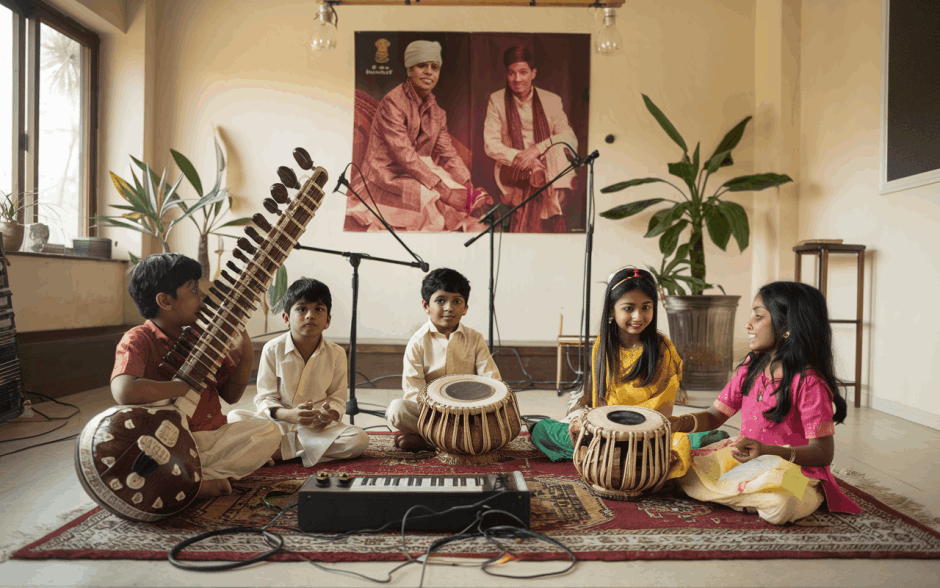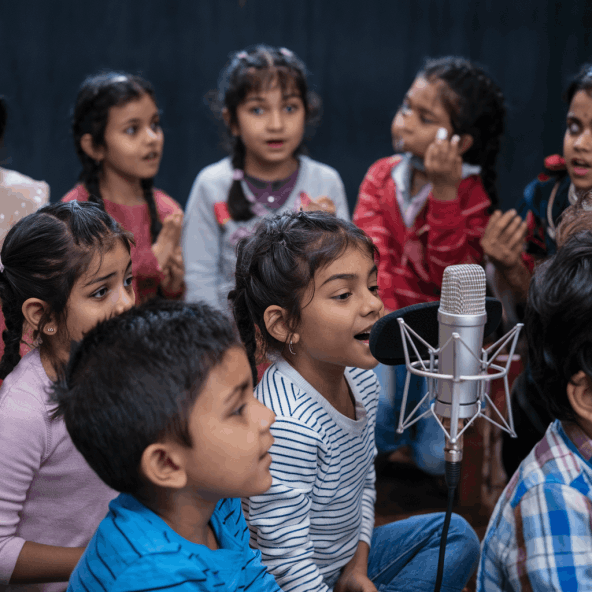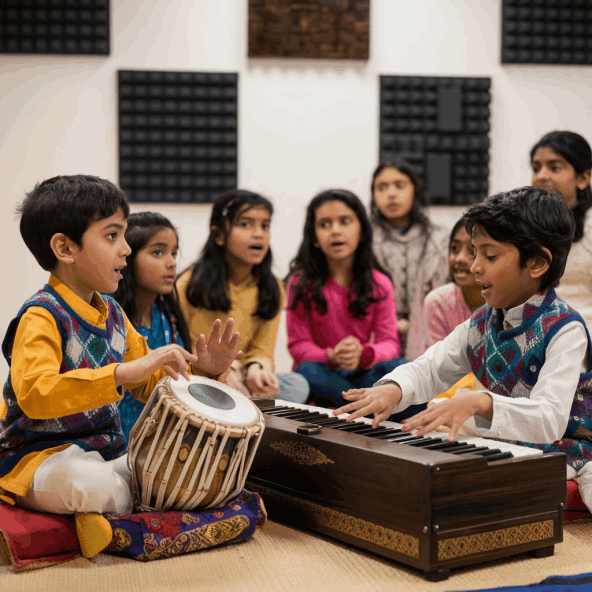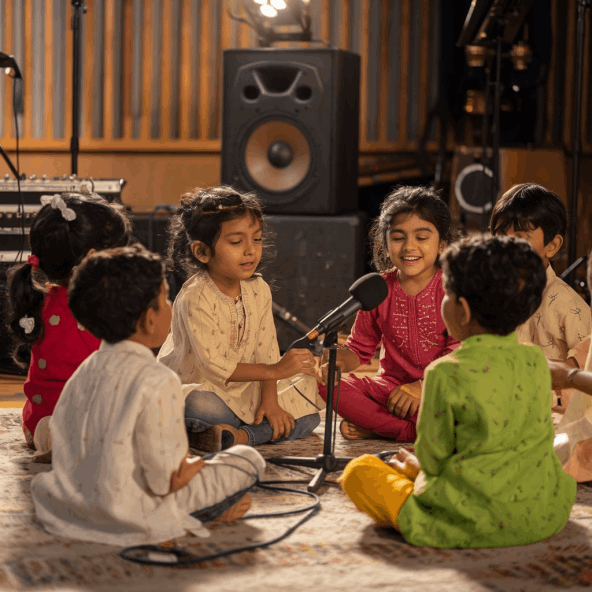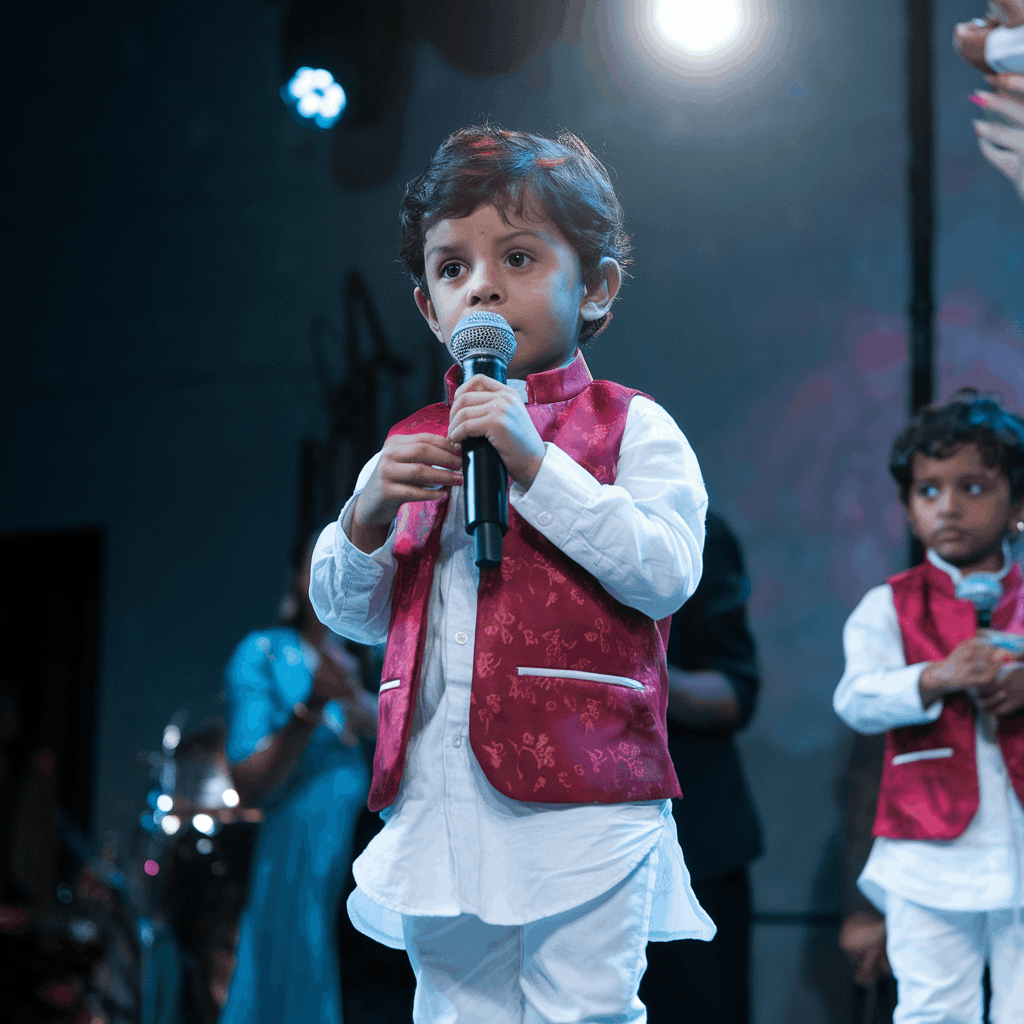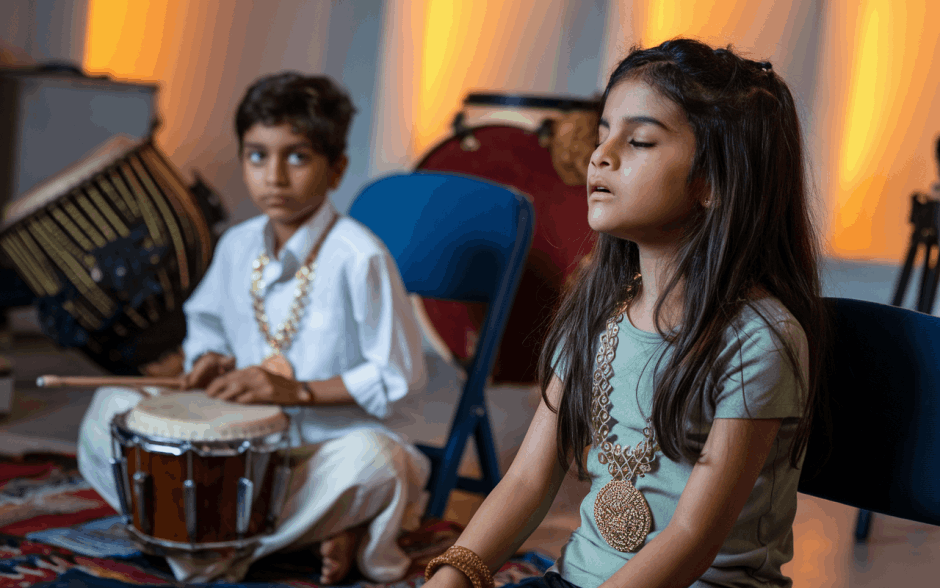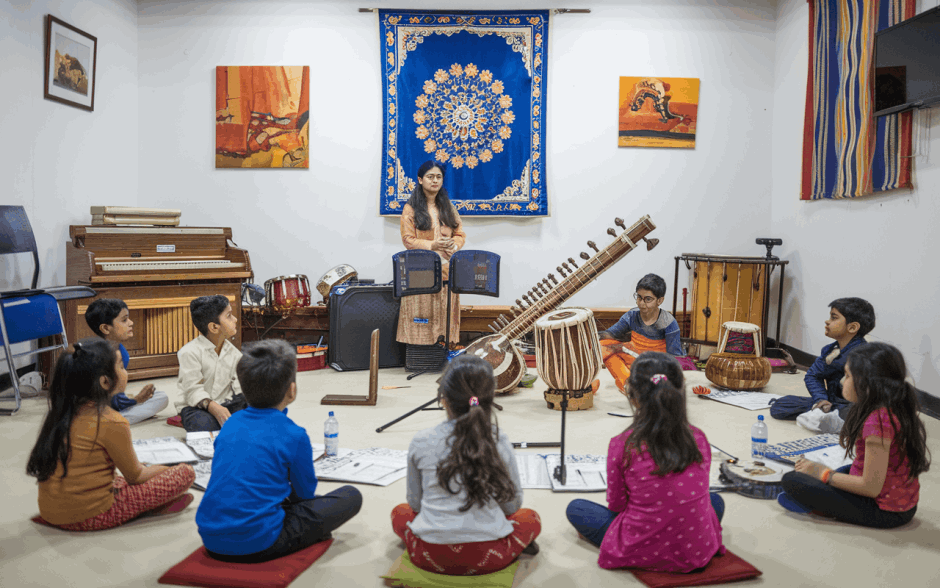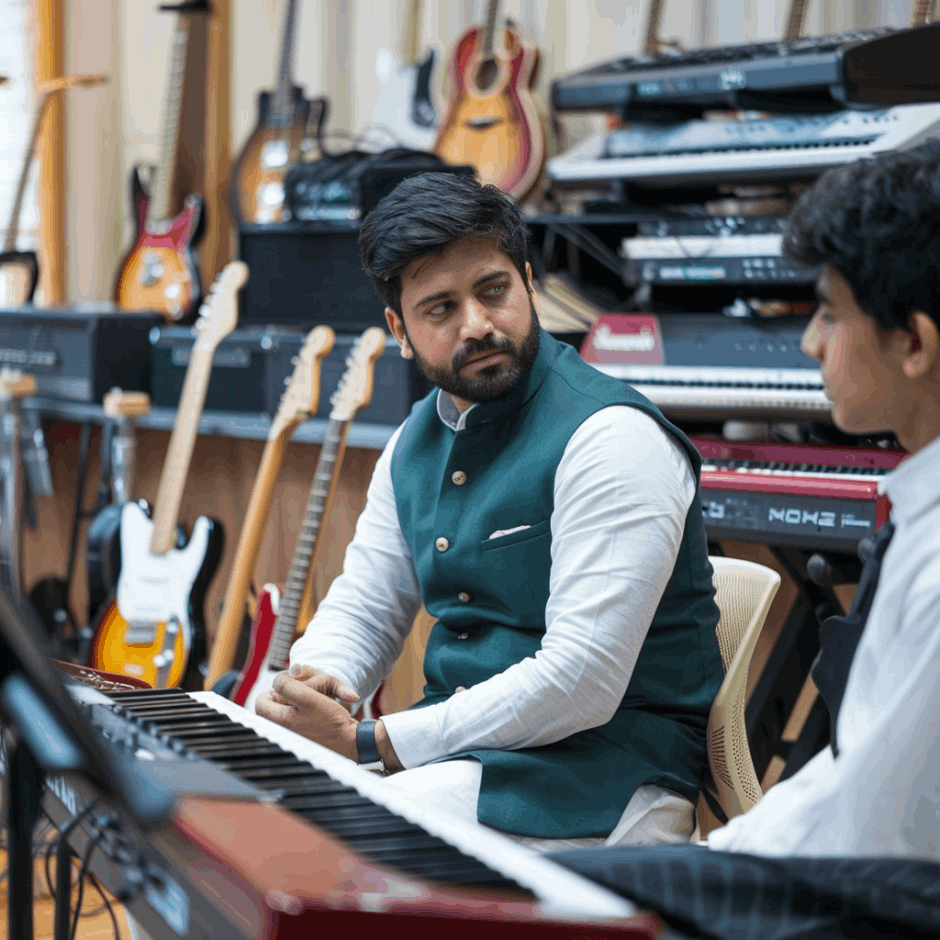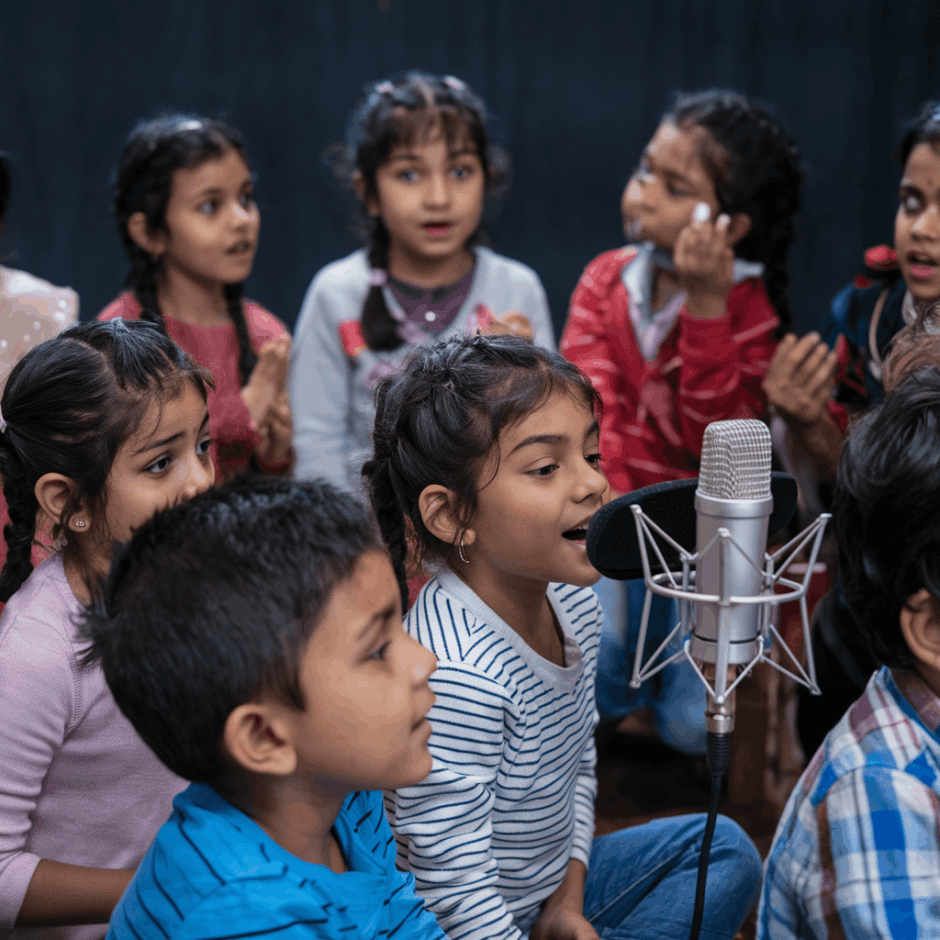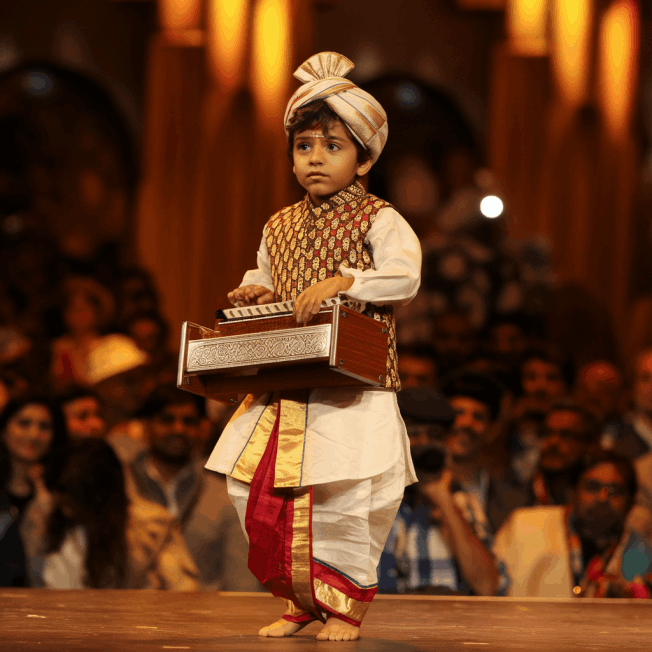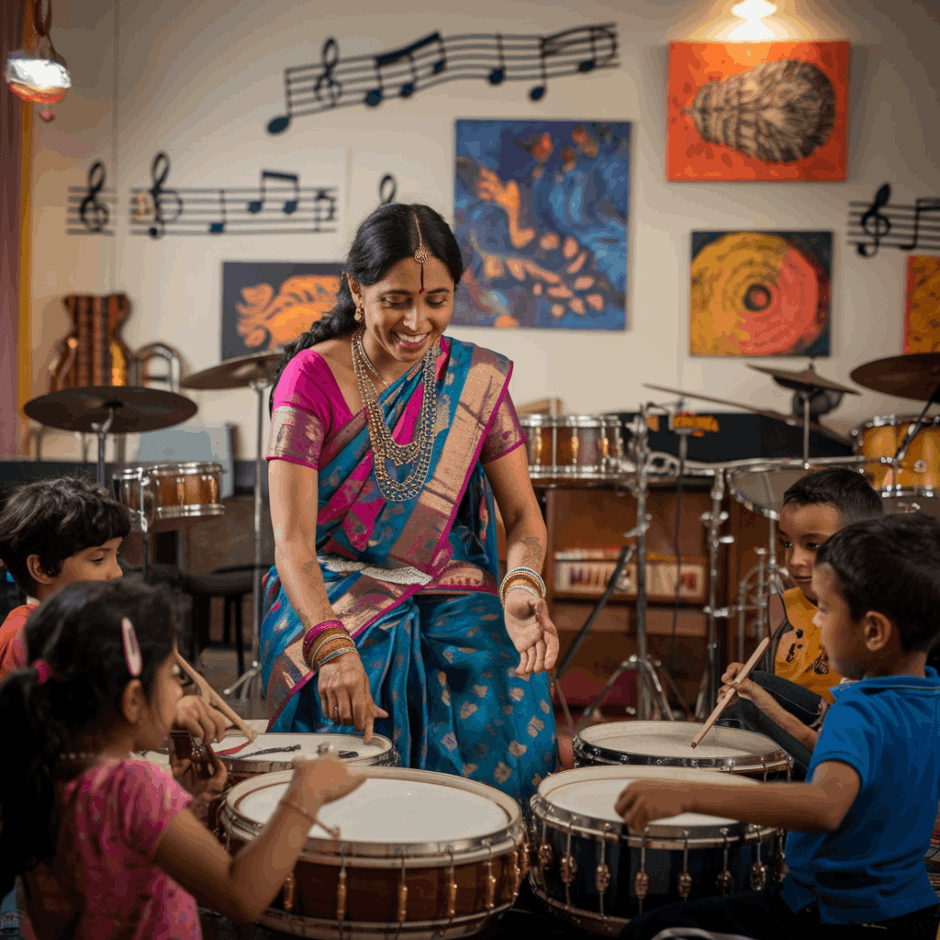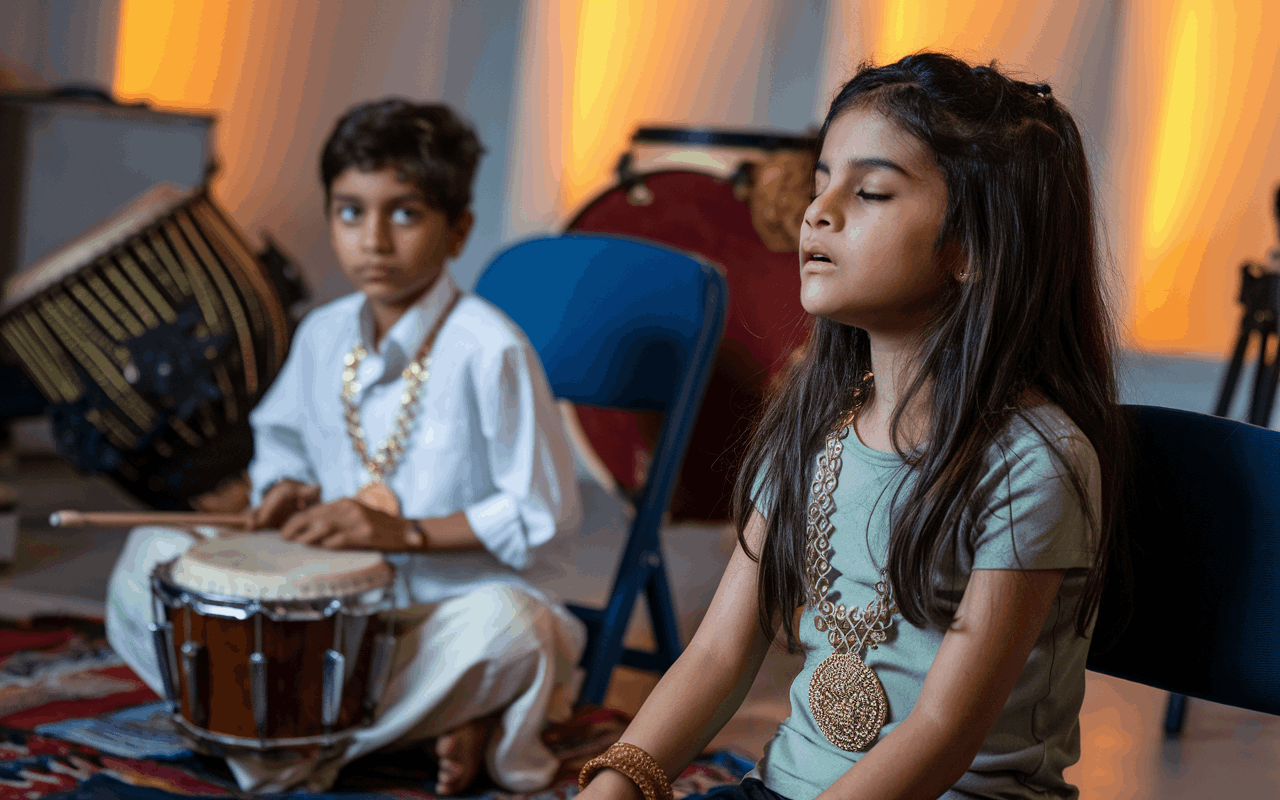Our teachers help the child choose an instrument that is interesting to him and suitable for his age and level of development. We offer training on the following instruments: Guitar (acoustic and electric), Piano, Violin, Tabla, Flute, Other instruments on request. Each instrument requires a unique approach, and our teachers are ready to offer an individual program for mastering each of them.
For each instrument, it is important to learn the correct playing technique to avoid mistakes and possible difficulties in the future. We teach basic skills such as correct posture, hand position, sound production technique and working with the instrument. These basics lay the foundation that allows the student to play his instrument comfortably and confidently.
We believe that knowing the basics of music theory helps children understand music better and progress faster. During the lessons, students learn to read notes, understand rhythms and chords, and comprehend the structure of musical pieces. Understanding the theory helps a child not just mechanically play melodies, but also understand how they are structured, which significantly deepens musical perception.
Each lesson is aimed at developing musical ear and sense of rhythm. We teach children to distinguish notes, chords, and rhythms so that they can confidently reproduce and understand music. Exercises in auditory perception help children memorize melodies faster and improvise, which adds flexibility to their musical skills.
We start with simple melodies and gradually move on to more complex pieces. As the child's skills grow, the training program becomes more in-depth and interesting. Each stage is designed so that the student can develop without losing interest in the instrument and without feeling overloaded. This can be both classical music and modern compositions chosen according to the child's interests.
Each child has their own musical interests and learning pace, and we take this into account when creating the program. Our team of teachers develops individualized curriculums that match the student’s level and musical preferences. These may include lessons in classical music, pop, rock, or Indian traditional melodies.
An important part of our lessons is learning improvisation. This helps children develop not only technical skills but also creativity. They learn not only to perform existing pieces but also to create their own melodies, explore sounds and rhythms, developing their own style and voice in music.
We offer both individual lessons and group lessons, depending on the student’s preferences and goals. Group lessons help develop team spirit, teach interaction with other musicians, and develop a sense of rhythm and harmony. Individual lessons allow you to focus on individual needs and progress faster.
Regular performances are an integral part of musical education at SurTales. We give children the opportunity to perform in front of an audience, which helps them develop stage skills and self-confidence. Concerts and mini-performances give children a chance to show what they have achieved and encourage their desire to improve.
We invite you to sign up for a free trial lesson to meet our teachers and choose an instrument that will inspire your child. SurTales is a place where every child can not only learn to play a musical instrument, but also discover their love for music.
